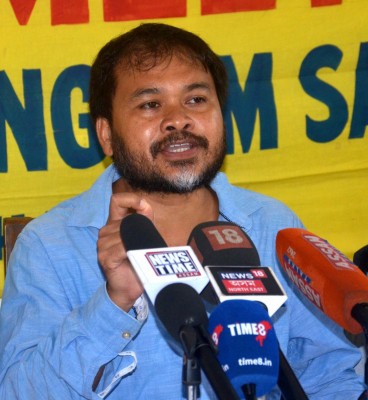
Guwahati, For the first time in 50 years, the treasury bench of the 126-member new Assam Assembly will not have any Muslim member even as 31 members from the community, the second-highest in 38 years, have been elected in the recently concluded elections.
In this year's elections, the ruling Bharatiya Janata Party put up eight Muslim candidates, the Congress fielded 17, while the All India United Democratic Front (AIUDF) nominated 19 Muslims and a Hindu candidate.
Of the 31 Muslims elected to the new House, the second-highest after the controversial 1983 elections during the height of the Assam agitation, 16 are from the Congress and 15 from the AIUDF.
In the outgoing House, the NDA comprising BJP, Asom Gana Parishad (AGP) and Bodoland People's Front (BPF), had 86 members with Aminul Haque Laskar being the Muslim representative.
Laskar, 55, who was the Deputy Speaker in the Assembly, could not retain his Sonai seat in the Bengali-dominated Barak Valley where he was defeated by Karim Uddin Barbhuiya of AIUDF by a margin of 19,654 votes.
The AIUDF was one of the main allies of the Congress-led 10-party ‘Mahajot' (grand alliance) that won 50 seats against the 75 seats won by the BJP led alliance. Jailed anti-CAA activist and prominent peasant leader Akhil Gogoi, the president of the newly floated Raijor Dal, won the remaining seat from Sibsagar as an Independent candidate.
The Congress and the AIUDF won 29 and 16 seats, respectively, improving their 2016 performance by three seats each.
Other partners of the Mahajot, BPF got four seats while the CPI-M won one seat.
Apart from 1983, the number of Muslim members in the Assembly has usually hovered around the 25-mark.
According to political analysts and commentators, the alliance with the AIUDF shattered Congress' dream to capture power in Assam, though the grand old party performed better this time as compared to 2016, when it was defeated by the BJP after 15 years.
Political observers categorically said that the Congress paid the price for the coalition with the Muslim-based body, AIUDF, in Assam.
The BJP and few other non-BJP parties had accused the AIUDF and its leadership of patronising "illegal immigrants" and most Assamese people had accepted the logic, they said.
According to Census 2011, Muslims account for 34.22 per cent population in the state, while Hindus and other religions account for the rest of the 3.12 crore total population of Assam.
Of the 126 Assembly seats, religious minorities decide the electoral fate in 23 seats, mostly in western and southern Assam, and play a crucial role in about seven more Assembly seats in different districts.
Of Assam's 34 districts, 12 per cent or more Muslim population resides in 19 districts and in six districts the Muslim population constitutes 50 per cent or more.


.jpeg)

